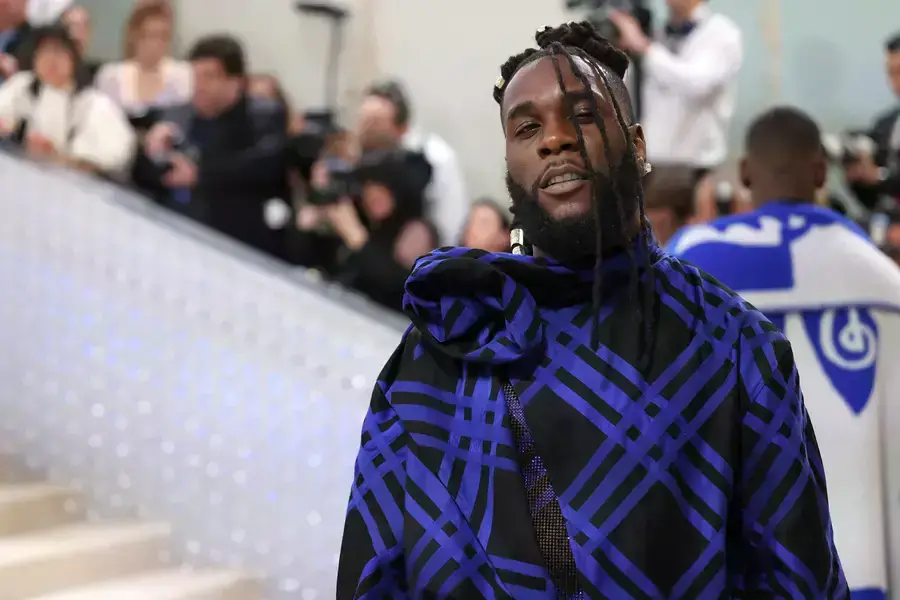The Nigerian Conundrum

It’s been a frenetic couple of weeks for the Nigerian Afrobeats star, Burna Boy. After making history by becoming apparently the first African entertainer to headline a stadium show in the United Kingdom, playing to a sold-out London Stadium, the 31-year-old was on the plane to Istanbul, Turkey, where he thrilled fans in the build-up to the UEFA Champions League final match between European soccer giants Manchester City and Inter Milan. Back in April, he had performed at this year’s Coachella, the annual music and arts festival in Indio, California, his second appearance since making his debut in 2019. In between, in early May, Burna Boy (real name Damini Ebunoluwa Ogulu) found time for an appearance at the Met Gala, by most accounts the world’s most important fashion spectacle.
While Burna Boy has deservedly hogged the headlines, the truth of the matter is that the Nigerian music and entertainment industry as a whole has been on a decades-long streak. For instance, at the Met Gala, Burna Boy shared the big stage with the Grammy Award-winning Tems (Temilade Openiyi). Back in February, both Tems and Burna Boy had teamed up with Rema (23-year-old Divine Ikubor) to thrill the audience at this year’s National Basketball Association (NBA) all-star game halftime show. Tiwa Savage’s performance was one of the artistic highlights of the coronation of King Charles at Westminster Abbey in May. And then there is 30-year-old Davido (David Adedeji Adeleke), the closest to a one-man entertainment juggernaut. The release in March of his latest album, Timeless, was a cultural event all by itself, and Davido’s appearance on The Late Show with Stephen Colbert was par for the course for an artiste who had a cameo in Coming 2 America (2021), and was featured on the FIFA World Cup Qatar 2022 official soundtrack.
More on:
Of course, it is not just in music and entertainment that Nigerians are, for want of a better word, tearing up the dance floor. The runaway success of the country’s diaspora has been documented. For example, in the United States, Nigerian-Americans are among the most successful immigrant groups, topping the charts in a wide array of fields. According to the Washington-based Migration Policy Institute (MPI), Nigerians in the United States are the most educated immigrant group, with 61 percent holding at least a bachelor’s degree, “compared with 31 percent of the total foreign-born population and 32 percent of the US-born population.”
Accordingly, the Nigerian conundrum consists precisely in the discrepancy between the demonstrated success of Nigerians, resulting in an unmistakable cultural confidence, and the country’s notorious political sclerosis. Nigerian entertainers may be redefining the global soundscape, giving American entertainment a run for its money; yet, Nigeria as a country cannot seem to get out of its own way. Not only is it one of the world’s most corrupt countries, ranking 150 out of 180 countries in the Transparency International Corruption Perceptions Index (CPI) for 2022, it is, perhaps deservedly, a global byword for dysfunction and infrastructural decay. So ugly is the state of affairs in Nigeria that, according to a 2021 Africa Polling Institute report, “seven out of 10 Nigerians are willing to leave their country if given the opportunity.” A similar recent survey by Lagos-based Phillips Consulting shows that “about 52 percent of Nigerian professionals are considering quitting their jobs and relocating abroad within a year.” Tellingly, 88 percent of such professionals are millennials and Gen Z, with the United Kingdom, Canada and the United States being the top three destinations.
Nor is Nigerians’ ‘appetite for elsewhere’ limited to professionals. Nearly half of the country’s adults surveyed in 2019 by Pew Research Center said they planned to move abroad in the next five years.
The sheer- and growing- size of the Nigerian diaspora shows that this is no empty boast. For instance, since 2020, the number of student visas granted to Nigerians by the United Kingdom (UK) has quadrupled, reaching a high of almost forty-three thousand in 2021. Nigeria consistently sends the largest number of African students abroad.
How do you explain this paradoxical entwining of cultural ebullience and political paralysis? One theory—let’s call it the Dysfunction as Fount Theory—holds that the cultural ebullience derives directly from the political paralysis, meaning that Nigerians are forced to be innovative and creative precisely because, and often in defiance of, the pervasive dysfunction in the politics. For proponents of this not implausible theory, the recurrence of a trope of dysfunction in the output of major Nigerian musicians is proof of its unavoidable imprint on Nigeria’s artistic imagination, while Nigerian comedy is nothing less than an attempt to overcome and negate it.
More on:
In parenthesis: Lagos, in its unique conglomeration of sex, sensation and spectacle, is the putative spatial metaphor for this dysfunction and the creative impulse it engenders. In its glorious chaos and boisterous lawlessness, Lagos has no equal anywhere in the world, and it comes as no surprise that it is the creative epicenter of the Nigerian entertainment industry. Thus, regardless of “state of origin,” every Nigerian artiste is Lagosian.
Admittedly, the picture of an inspiring society permanently at odds with a frustrating state, though accurate on the whole, can be overdrawn. In reality, both state and society are entangled in webs of relationships and social logics that suggest an underlying moral unity, a fact adequately illustrated by the well-documented shenanigans of the Nigerian celebrity world.
Is there a breaking point where the defiant ebullience of society succumbs to the venal ethic of the state? So far, Nigeria does not appear to have reached that point. Society, at least as indexed by the entertainment industry, continues to confound observers with its dynamism and resilience. As long as there is Burna Boy, there is hope for Nigeria.
Reina Patel contributed to the research for this article.
 Online Store
Online Store